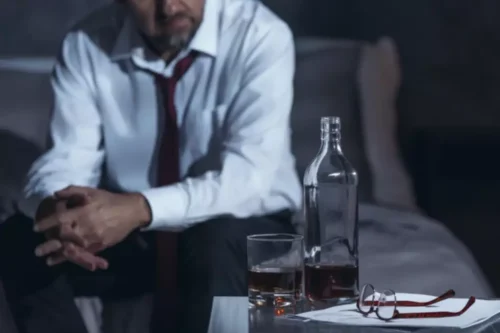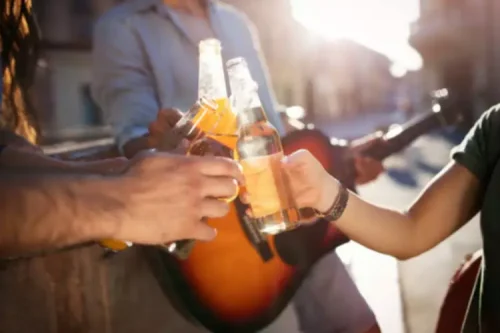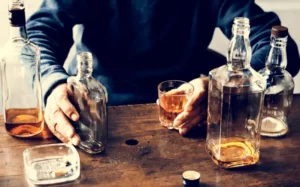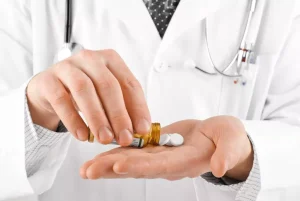
Means and standard deviations for dependent variables (positive affect, negative affect, and basic psychological needs) by beverage condition across measurement occasions. Upon arrival to the laboratory, participants were seated along with two confederates of the study. These confederates served as the ostensible participants and “competitors” in the ostracism and aggression tasks, respectively. If you or someone you love is battling aggression and alcohol misuse, help is available. Consult with a mental health professional and/or an addiction specialist who can provide resources and recommendations for treatment options.

Differentiating verbal expression of anger from physical aggression
Another study revealed that alcohol-dependent men had drunk significantly more alcohol in the 12 hours before violent conflicts with their partners than before situations that did not end in violence (14). Acute episodes of high alcohol consumption therefore seem to favor aggressive behavior more strongly than chronic alcohol consumption (15, 16). Thus it seems that more frequent severe, acute intoxication makes a decisive contribution to the high prevalence of alcohol-related aggression in alcohol-dependent individuals. A current alcoholism and anger review indicates that the cognitive processes often affected in acute alcohol intoxication and chronic alcohol consumption that may contribute to alcohol-induced aggression can be improved by computer-aided cognitive training (e31). For example, difficulties processing information, verbal or non-verbal memory, attention, and problem-solving abilities are enhanced. In alcohol-dependent individuals it has successfully been shown that cognitive training can support rehabilitation as part of traditional treatment (e.g. 17–19).
- If one of our articles is marked with a ‘reviewed for accuracy and expertise’ badge, it indicates that one or more members of our team of doctors and clinicians have reviewed the article further to ensure accuracy.
- Dr. Carlos Todd PhD LCMHC specializes in anger management, family conflict resolution, marital and premarital conflict resolution.
- Without the OFC doing its job of calming those intense emotions, a person can have a strong reaction (2).
- Another study explored the relationship between Posttraumatic Stress Disorder (PTSD), alcohol use, and violence (Blakey et al., 2018).
A self-awareness intervention for heavy drinking men’s alcohol-related aggression toward women
Sometimes, people with alcohol use disorders have an unhealthy relationship with alcohol due to specific genetics. Continue reading to learn more about the link between alcohol and anger, including which risk factors exist, how alcohol-related aggression can be dangerous and more. By understanding how alcohol abuse influences your mood, you can learn to make positive choices instead of ones you may regret. Contrary to popular belief, anger is not the sole emotional experience while drinking.
How Alcohol Works Affects Your Behavior

Hence, it is probable that in the aggressive brain, the drop in brain serotonin synthesis might even be greater (40–60%) during moderate intake of alcohol (Badawy, 2003). However, the inconsistent findings of serotonin markers in brain imaging studies of alcoholics suggest that comorbidity of AUD with other psychiatric disorders may complicate the serotonin hypothesis in real life. In addition, even individual differences in personality traits determine the types of emotion affected by the depletion of serotonin (Kanen et al., 2021). Alcohol use disorder https://ecosoberhouse.com/ (AUD) is one of the leading causes of the global burden of disease and injury (WHO), despite the continuous discovery of novel pharmacotherapeutic agents (Pakri Mohamed et al., 2018). Various factors such as environmental, social, situational, and cultural context have distinctive consequences toward substance use and its effects on individuals (Latkin et al., 2017). Violence related to substance use has been widely reported and studied, particularly the potential for violent outcomes between the different substances of use (Duke et al., 2018).
Brain chemistry, alcohol, and rage
Anger management and alcohol treatment programs must recognize and educate participants about the relationships between alcohol and anger. It’s equally important that psychotherapists highlight this interaction both with clients who consume alcohol and those in relationships with them. Additionally, this information should also be taught in schools to expand their understanding and hopefully reduce the prevalence of alcohol-related aggression.
Characteristics of blunt and penetrating trauma among victims of physical violence: A retrospective study

Trait Anger and Alcohol Aggression
- In addition to receiving guidance from experienced professionals, support groups are effective for building relationships.
- Anger is an emotion made up of many different feelings like dissatisfaction, displeasure, hurt, and frustration.
- It should be noted that the target variables of these randomized, controlled clinical trials were treatment outcomes such as remaining abstinent, rather than aggressive behavior or aggression.
- Through empathy and support, we can create environments that nurture healthier relationships with both alcohol and emotions.
- Even the people who care about them the most can be unable or unwilling to continue to tolerate the abuse.
Providing reassurance and support
- When it came to the positive benefits of alcohol consumption, the same study found that the effect was stronger in reducing negative emotions than it was in introducing positive ones.
- Therefore, seeking a solution for alcohol-related aggression is essential for your future health and safety.
- Expressive murders are most often preceded by arguments and altercations and the level of intoxication increases the viciousness of the attack (Karlsson, 1998).
- Attending one-on-one therapy with a licensed therapist can help you work through anger issues in a more private setting.